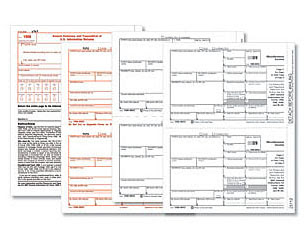A must read: My First Blog Award
.
For artists, the three inescapables in life are death, taxes and rejection. This column has already discussed rejection, and I'm not touching death, but with April 15 looming, let's talk taxes. Not that I have the appropriate initials to address the topic authoritatively--as in CPA or IRS--but I have plenty of OMG and WTF. Here's what I think is important. I hope you'll add to the conversation:
.
 1. Keep good records. I don't understand that everything-in-the-shoebox method. Someone has to sort those receipts, and if it's not you, you're gonna pay for someone else's time to do it. Have you switched to an electronic system like Quicken? Do you like it? I'm still using ledger paper for money in and money out, and in a notebook at the end of each day I enter expenses in the appropriate category I've created: art supplies, books, business services, mileage, office supplies, telecommunication, and many others. Then I tote up my figures at the end of each month, so that at the end of the year I add up 12 figures for each category. My system is "Slow-en" but it works for me.
1. Keep good records. I don't understand that everything-in-the-shoebox method. Someone has to sort those receipts, and if it's not you, you're gonna pay for someone else's time to do it. Have you switched to an electronic system like Quicken? Do you like it? I'm still using ledger paper for money in and money out, and in a notebook at the end of each day I enter expenses in the appropriate category I've created: art supplies, books, business services, mileage, office supplies, telecommunication, and many others. Then I tote up my figures at the end of each month, so that at the end of the year I add up 12 figures for each category. My system is "Slow-en" but it works for me..
2. Get help. Do you freelance? Have a part-time gig with witholding taxes? Work a 9-to-5 and also make art? Do you pay a mortgage and maintenance? Do you have kids? Are you paying off an education loan? Do you own rental property? Do you have deductions for art supplies and activities? Do you work in different states? When you're filing a salad of W-2s, 1099s, Schedule A, Schedule C and more, the last thing you want to do is go it alone. Plus, tax laws change from year to year, so following last year's forms may not be to your advantage. I have used the same tax person on 19th Street for 20 years. She knows my history and, more important, she understands the particular needs of self-employed people. I pay her $600 for the job, but I'm guessing she saves me 10 times that, to say nothing of the agita of trying to figure out those forms. If I get audited, not only do I have well-organized records, I'll have a knowledgeable and experienced professional to represent me. (Seasonal tax preparers like H & R Block may be good for some folks, but I do not believe they have the expertise we need.)
.
3. Don't cheat. Small businesses and freelancers raise all kinds of red flags because we don't fit into conventional IRS parameters, unlike the millions of folks who have one w-2 and file a short form. And you should know that the Feds are going after the small businessperson. (You'd think they'd go after the big corporations, where they might get some serious money. But no. The corporations have phalanxes of attorneys, so they go after us for chump change.)
.
The good news is that pretty much everything we do is legally tax deductible; we just have to put it in the correct box and have a receipt or diary entry to back it up.
. Do you visit New York City (or another big gallery city) from time to time to see the galleries and museums? Deductible--airfare, hotel, food, museum entries, taxis or subway fare, everything; it's a business trip
. Do you travel frequently to deliver artwork and attend your openings? All the associated travel expenses are deductible
. Do you use your vehicle for business? Keep track of the miles traveled for business; a good percentage of your auto expenses may be deductible
. Do you have copies of your slides and art CDs in a safe deposit box? Deductible
. Career consultation? Deductible
. Computer assistance? Deductible
. Framing? Fed Ex? Maintaining your website? Entry fees? Deductible, deductible, deductible, deductible
. Telephone? Cable? They should be deductible at least in part
. Your studio? Deductible, of course
. The studio in your home? A percentage of your building expenses are deductible, but the space must be used solely and regularly for art business
. Your health insurance if you're paying for it yourself? De-frickin-ductible
. Your tax prep? Deductible for the following year
.
There's much more, including equipment that has to be amortized over five years. Naturally there are particulars for all of this. You have to show a profit every five years or your business will be classified as a "hobby" with no deductible benefits, but an experienced tax pro may know of exceptions, especially as most business are suffering in the recession.
.
Now, over to you. What are your thoughts, observations, advice to colleagues who are struggling with too many numbers and, probably, not enough cash?












